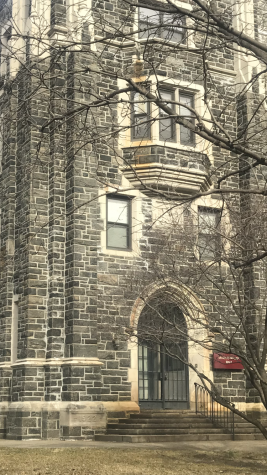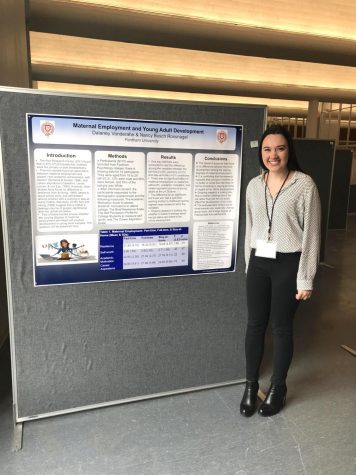Pre-Med and Pre-Health Numbers On the Rise

Pre-Med and Pre-Health Numbers On the Rise
A growing need for people in healthcare has contributed to the constant growth of Fordham's PCS program (Kevin Stoltenborg/The Fordham Ram).
A growing need for people in healthcare has contributed to the constant growth of Fordham's PCS program (Kevin Stoltenborg/The Fordham Ram).
April 25, 2018
Filed under News
Hang on for a minute...we're trying to find some more stories you might like.
Email This Story
By Joe Esposito

A growing need for people in healthcare has contributed to the constant growth of Fordham’s PCS program (Kevin Stoltenborg/The Fordham Ram).
From Spring 2017 to Spring 2018, there has been growth in the pre-med/pre-health program at the Fordham University School of Professional and Continuing Studies (PCS), according to Laura Bigaouette, the director of the program. This is approximately a 30 percent increase, according to Nicole Bryan, associate dean for Fordham PCS.
Biggaouette said the growth in the program correlates with an overall growth in the industry.
“There is general growth in the entire healthcare industry,” she said.
Biggaouette attributed this growth to an aging baby boomer population and the fact that people are living longer. The population as a whole is also growing, and there is growth in immigration, according to Biggaouette. Because of these changes, students are seeking to become patient-advocates, according to Biggaouette.
A growing need for people in healthcare has caused communities to become more sensitive to the need for service, according to Bryan. These factors have contributed to the consistent growth in the program.
Biggaouette has served as the director for the pre-med/pre-health program since September of 2017. She had previously worked at Manhattanville College, where she was also a program director and oversaw two programs.
Undergraduate programs are seeing similar changes, according to Ellen Watts, the assistant dean for pre-health advising for Fordham College at Rose Hill. Over the last five to six years, the pre-health undergraduate program at Fordham College Rose Hill has grown, according to Watts. Last fall, there were approximately 245 pre-health students as a part of the first-year cohort. That number has increased; in 2011, that number was 125 students. Furthermore, more students are staying in the program, according to Watts.
Also, for the last two years, acceptance rates of students applying to professional schools has been over 80 percent, according to Watts. In the past, fewer students followed through with the process, with around 25 or 30 students applying. Now, around 90 students apply, according to Watts.
Bigaouette also attributed the growth of PCS’s program to prospective students’ recognition of what Fordham has to offer.
“It’s the Fordham reputation, the Fordham philosophy around education, the Jesuit tradition that really runs very profoundly through a lot of the candidates with whom I speak,” she said.
The Fordham ideal of ‘Cura Personalis’ is instilled into programs at Fordham PCS, including pre-med/pre-health, according to Bigaouette. Showing personalized care and giving time and dedication to individual students is a feature of the program that helps them stand out from others, according to Biggaouette.
“This is a unique and strong characteristic of our program. Students who do want that type of advising and help and support come here for that,” she said.
Another component that makes the Fordham program attractive and has contributed to its growth is its small class sizes, according to Biggaouette. Size ranges from around 15 to 25 students a class, much smaller than some larger university settings, according to Biggaouette. This allows for a more intimate learning experience, according to Biggaouette.
“They get that personalized focus and attention from their faculty, as well as from us at PCS,” she said.
The unique structure of Fordham’s program has also contributed to its growth, according to Bryan. She said the pre-med/pre-health program is tailored to people working full time and who need to attend classes during the evening and on the weekend. This program, focused on people who are changing careers, allows them to get the science background they need to make that change into or within the healthcare field. With the structure of the program, they are able to do so in a flexible manner, according to Bryan.









If you want a picture to show with your comment, go get a gravatar.